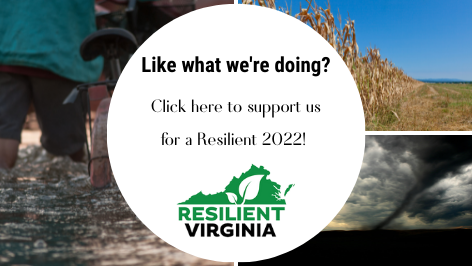By: Trish Porter, Marketing and Communications Director, Resilient Virginia 1/14/2022
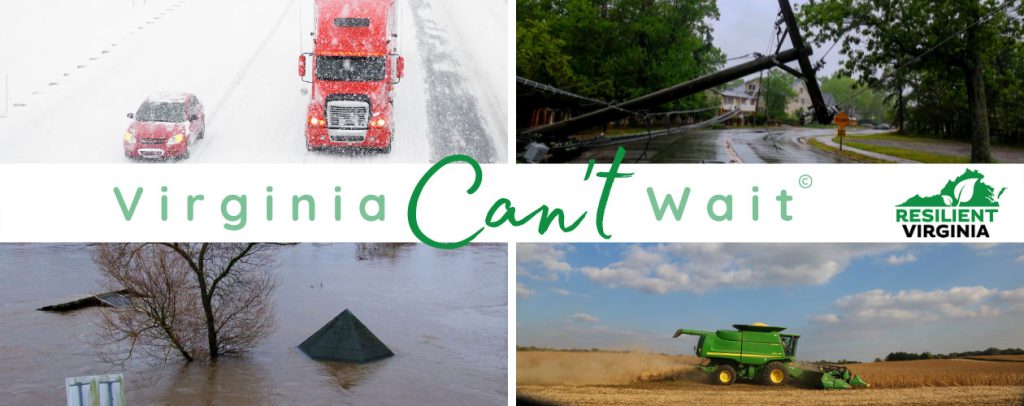
Unusual weather events; a global health crisis; a changing economy and massive job losses – these are only a few of the reasons we believe Virginia Can’t Wait to move resiliency initiatives forward. Our communities deserve a better future.
Virginia Can't Wait...
- For natural disasters to strike before building resilient infrastructure that can withstand whatever may happen;
- Or for a community’s economy to collapse before introducing new jobs and business opportunities.
- For our homes to repeatedly flood before implementing effective adaptation strategies;
- Or for inequities to increase before deciding to represent and serve all communities.
- Until our environment is damaged beyond repair before doing something about it.
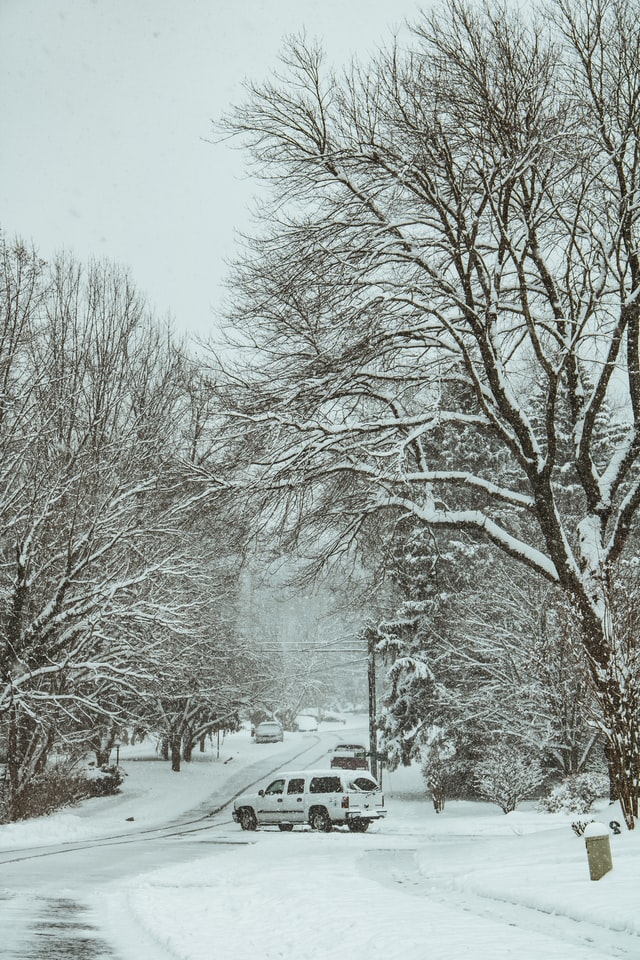
For the first nine months of 2021, NOAA reported that the 18 major disasters from floods, hurricanes, droughts, and fires in the US cost more than $104 billion dollars. And according to America’s Preparedness Report Card, with analysis done by Climate Central and ICF, around 260,000 Virginians live in areas at risk of inland flooding (defined as FEMA’s 100-year floodplain).
It is costly to recover from a disaster. Resiliency Planning can help communities build capacity to withstand these events and bounce back faster.
It is important that we act sooner rather than later. Every community needs to be able to address extreme weather or high impact events. They need to be able to adapt and prosper despite changing climate, environmental, social, and economic conditions.
This cannot happen overnight and Virginia Can’t Wait to put it off any longer. We need to work together so we can get it done!
Fortunately, Resilient Virginia is in a unique place to partner with local and state governments, community groups, and other organizations to help Virginia’s communities. If we all work together, then we can help Virginia remain a vibrant place to call home for a long time to come.
We Can Do So Much More If We Work Together
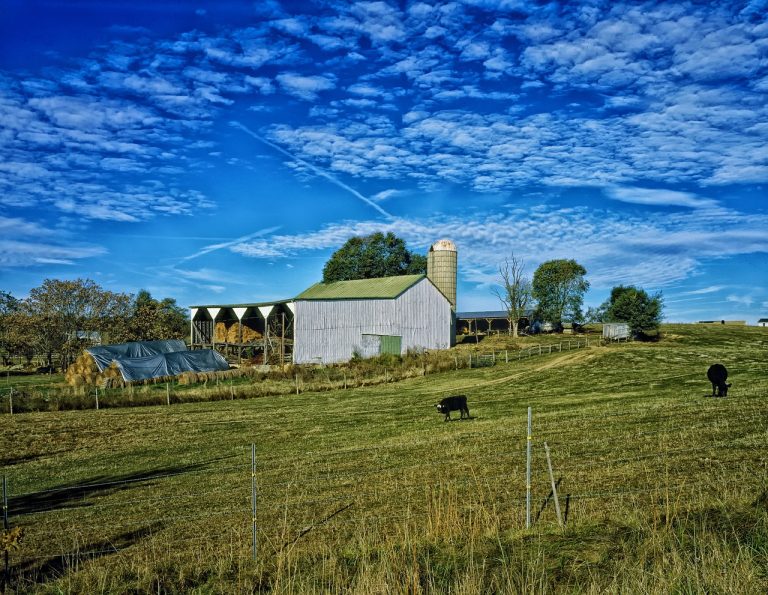
At Resilient Virginia, we are committed to bringing resiliency planning into the mainstream conversation in 2022.
Some of our plans for this year include:
Continuing in our role as facilitator by bringing together stakeholders into an atmosphere that is open and welcome so everyone will feel comfortable contributing to the conversation;
Continuing in our role as educator by bringing together expert speakers from different segments of the resiliency field for our Resiliency Academies and Star Speaker Series;
Partnering with higher education institutions to provide internship opportunities for college students wanting real-world experience in the resiliency field;
Gathering the most recent and relevant resiliency information and tools, as well as research and publish our own white papers, for our Resiliency Resource Hub;
Supporting local and regional resiliency initiatives;
Advocating for a state-level resiliency plan; and
Forming a Regional Resilience Collaborative for Central and Southwest Virginia.
We know this is a lot, but it is necessary. This is why partnerships and collaborations are important. Working together, we can have a much bigger impact on a community than going it alone.
There are many ways to get involved with this initiative but the simplest way is to let others know about Resilient Virginia and Virginia Can’t Wait. Include our initiative in your newsletter or other communications with your network. Tag your social media images with #VirginiaCantWait. Follow us and share our social media posts.

For a great way to keep up with the latest resiliency news, please sign up to receive our quarterly newsletter.
These simple actions can have a big impact but there are other ways to get involved though. Keep reading to learn more.
Let's Work Together to do Something Good for Virginia's Communities
Partner with Us
We want all stakeholders to be involved in the planning and implementation of resiliency strategies. It is only with everyone at the table that we can make sure these strategies are equitable, and it is only through equitable strategies that we will succeed. We need your help in making sure we don’t leave anyone out! Please partner with us so all voices are heard and all communities are represented.
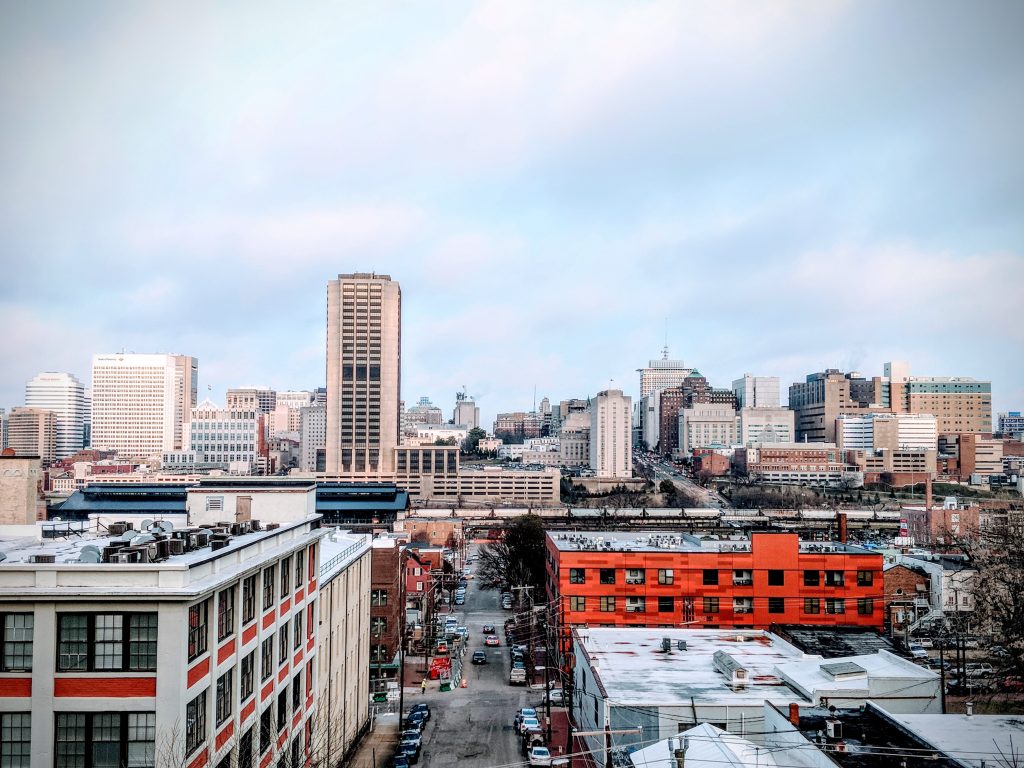
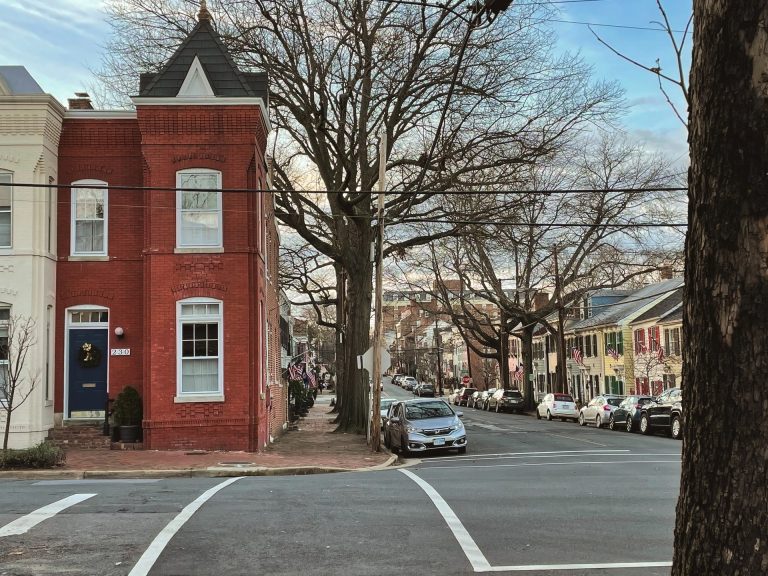
Become a Member
Become a member and help us work on resiliency initiatives. With your membership you have access to:
Reliable, timely, and relevant information;
Discounts to all of our educational webinars and conferences where you will learn from expert speakers in the resiliency field; and
An invitation to our listening and planning sessions where you can help us determine the path that will be most impactful.
We need all hands on deck! Please become a member today.
Make a Donation
If you are not ready to commit to partnership or membership, consider making a one-time donation. Your donation goes straight back into helping Virginia Communities.
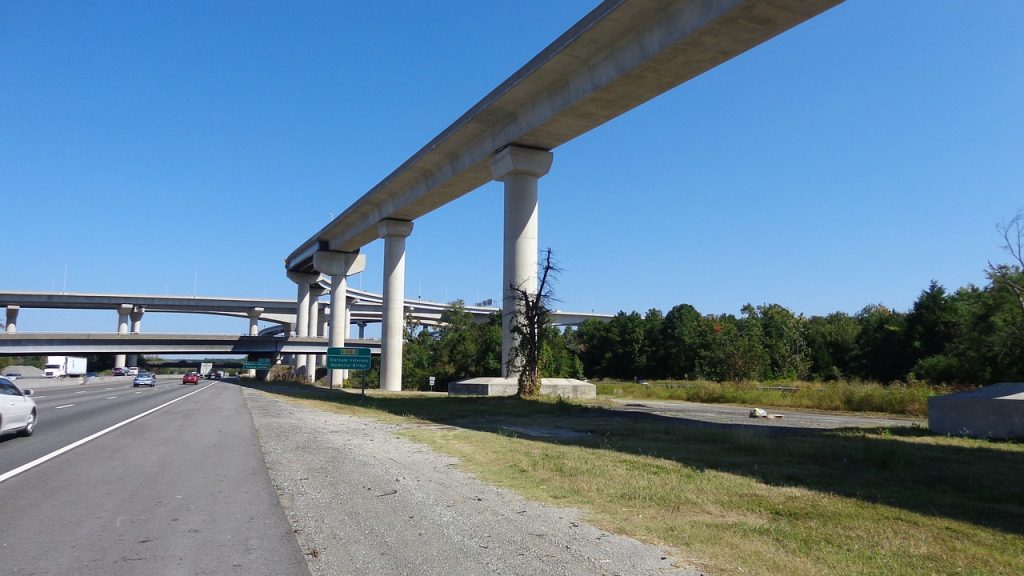
Does Your Community Need Help?
There is no “one size fits all” solution. Resiliency planning involves analyzing a community’s strengths and identifying gaps in how well it can deal with natural and man-made disasters, public health challenges, and socio-economic stressors. If you would like help with resiliency planning for your community, let us know. We’re here to help!

